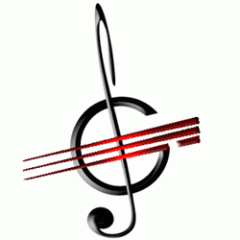Hi
Ever wondered what it would sound like if you slowed down a song massively? Those of you who grew up with record players will already know the answer, as on the good ol’ turntables you could play around with the speed the record played back at. Some record players only let you play at 33 or 45 rpm, for long playing records and singles respectively, bu my dad had a Lenco which had a temposlider that you could set to pretty much any speed. So it was really good fun to make Bing Crosby sound like Mickey Mouse, by playing White Christmas much faster than it should be. Or indeed to slow the Glenn Miller Orchestra down to sound like they were playing too low, from a long way down in a cave (when slowed down).
And therein lies the problem – of you slow down a recording the pitch drops. If you speed it up, the pitch goes up and singers, even the very best, just sound like Mickey Mouse.
Three years ago someone called Paul posted a video of Justin Bieber’s U Smile slowed down by 800%. The effect is a rather mesmerising and ethereal. Like angels singing (and I am not Bieber fan).
What was different here is that the pitch stayed the same, but without any strange graininess coming into the audio file – the usual problem when you slow down audio in a daw (digital audio workstation, like Cubase or Logic).
The software is actually freely available:
http://hypermammut.sourceforge.net/paulstretch/
There is also a similar product available, which lets you freeze, at the pouch of a button, any audio that is playing back. It is rather aptly called Time Freezer.
Here is a video of it in action:
Good fun!


